Frequent physical activity is one of the most crucial things you can do for your fitness.
Physical activity is necessary for everyone’s health regardless of age, ability, ethnicity, shape, or size.
People who sit less and engage in moderate-to-vigorous physical activity reap health benefits.
Physical activity is one of the few lifestyle choices that impact your health.
Discover how to plan to get moving or add more activity to your life.
What is physical activity?
Any body movement produced by skeletal muscles that involve energy expenditure is considered physical activity.
Physical activity encompasses all movement, whether for recreation, transportation to and from places or as part of a person’s job. Exercises of both moderate and vigorous intensity benefit health.

What are the most popular forms of physical activity?
Walking, cycling, wheeling, sports, active recreation, and play are popular activities you can do at any skill level and by everyone.

Rundown of the 12 health benefits of physical activity
Here are the top 10 health and mental benefits of physical activity.
1. Build Muscle and Bone Strength
You can safeguard your bones, joints, and muscles as you age because they support your body and allow you to move.
Keeping your bones, joints, and muscles healthy will help you complete your regular activities and be physically active.
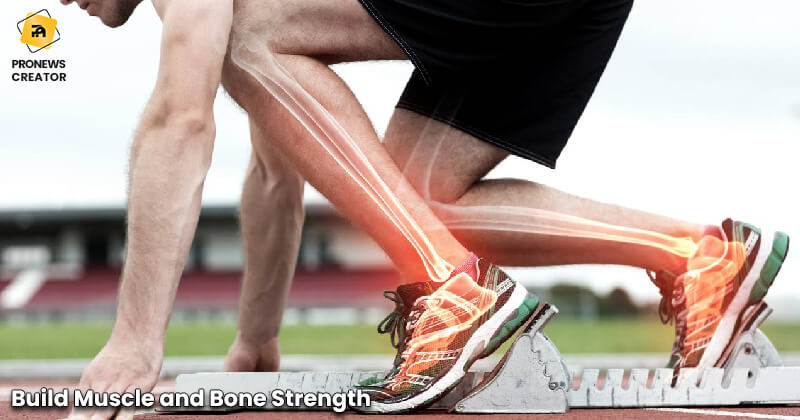
2. Addresses Diabetes and Metabolic Syndrome
Physical activity regularly can lower your risk of acquiring type 2 diabetes and metabolic syndrome.
Metabolic syndrome happens by excess fat around the waist, high blood pressure, low HDL cholesterol, high triglycerides, or high blood sugar.
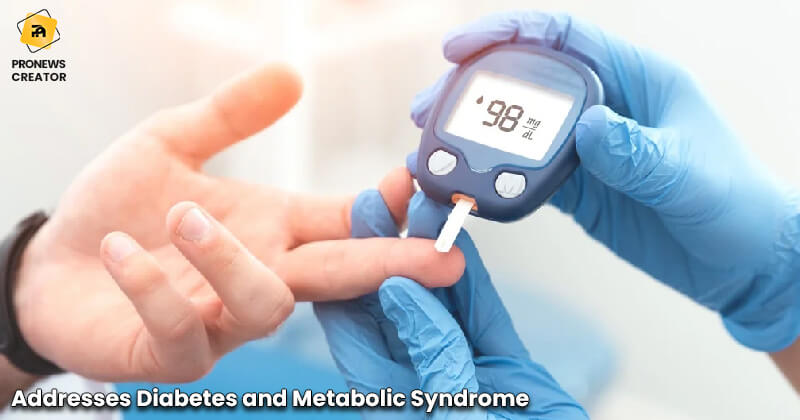
3. Enhances brain health
Exercise can boost brain function and protect memory and reasoning abilities.
To begin with, it raises your heart rate, which boosts blood and oxygen flow to your brain. It can enhance the synthesis of hormones that promote brain cell proliferation.
Exercise’s capacity to avoid chronic disease can translate into benefits for your brain, as these conditions can impair function.
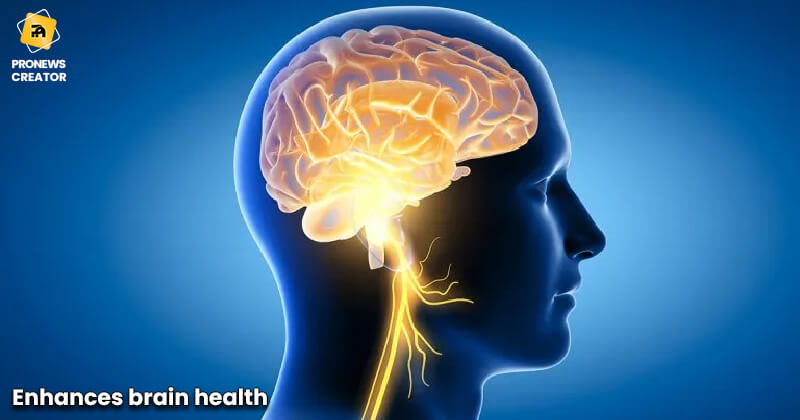
4. Reduce anxiety and stress
Exercise lifts your spirits and reduces emotions of depression, worry, and stress.
It causes alterations in the areas of the brain that control stress and anxiety. It can also boost brain sensitivity to the antidepressant chemicals serotonin and norepinephrine.
Exercise can also support to promote happy feelings and minimize pain perception.

5. Relieve pain
Although chronic pain can be incapacitating, exercising can help alleviate it.
According to recent research, exercise can aid with chronic pain relief.
Indeed, one study indicated that exercise can assist people with chronic pain, lessen their pain and enhance their quality of life.
Several studies have also shown that exercise can help control pain caused by many health issues, such as chronic low back pain, fibromyalgia, and chronic soft tissue shoulder dysfunction.

6. Boosts energy levels
Tired of grocery shopping or housework? One of the benefits of Regular physical activity is that it can help you gain muscle strength and endurance.
Exercise helps your cardiovascular system perform more efficiently by delivering oxygen and nutrients to your tissues.

7. Assist you in quitting smoking
Exercise can help you quit smoking by lowering cravings and withdrawal symptoms. It can also assist you to avoid gaining weight when you stop smoking.

8. Cardiovascular Disease (CVD)
Heart illness and stroke are two main reasons for death in the United States.
Getting at least 150 minutes of moderate physical activity per week can reduce your risk of certain diseases. Increased physical exercise can help you minimize your risk even further.
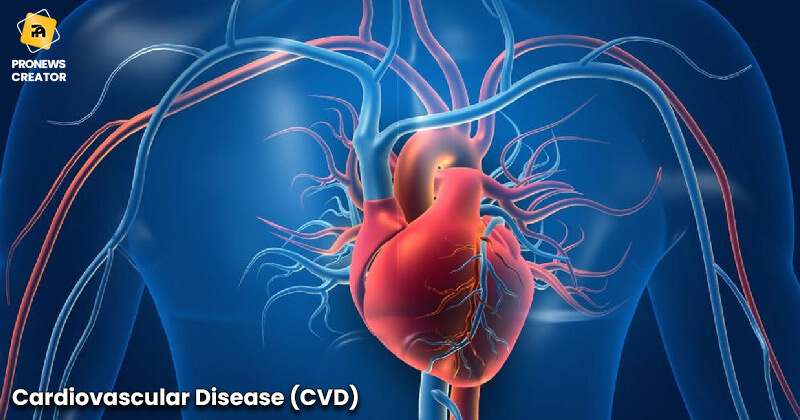
9. Helps you sleep better
Having trouble sleeping? Regular physical activity can assist you to fall asleep faster, sleeping better, and sleeping deeper. Don’t do it too close to bedtime, or you’ll be too energized to sleep.

10. Exercise may be enjoyable… and social!
Physical activity and exercise can be pleasurable. They allow you to relax, enjoy the outdoors, or indulge in activities that make you happy. Physical activity can also help you connect with family or friends in an enjoyable situation.

11. Loss of weight
According to research, inactivity is a contributor to weight gain and obesity.
Your body consumes energy in three forms:
| Digestion of food | Exercise |
| Maintenance of physiological processes such as heartbeat and breathing |
A lower calorie intake while dieting lowers your metabolic rate, potentially postponing weight reduction.
Exercise increases your metabolic rate, which can burn more calories and help you lose weight.

12. Enhance your overall quality of life
Regular physical activity may also improve your current quality of life. If you become more active, you may have a better mood, less stress, and a healthier body.

How much physical activity should you get each day?
Health doctors and academics recommend at least 30 minutes of moderate-intensity physical activity to maintain health and lower your risk of health problems.
Adults should attempt to be physically active every day and aim for at least 150 minutes of physical activity per week across many activities.
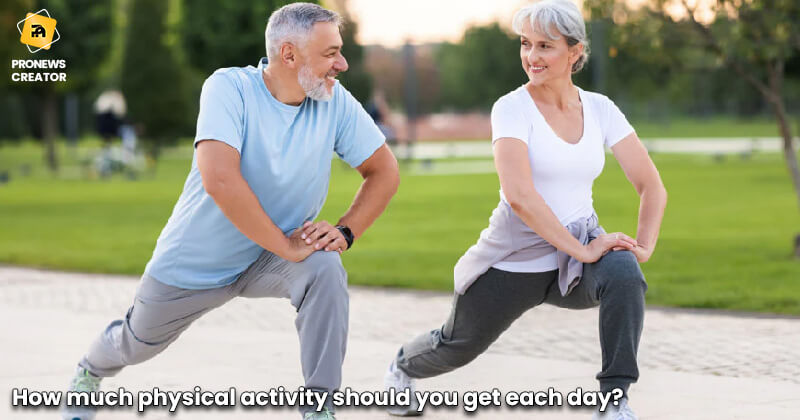
What are the risk factors of physical inactivity?
One of the top risk factors for noncommunicable disorder mortality is physical inactivity. People who are not physically active enough have a 20% to 30% higher risk of death than those who are physically active enough.
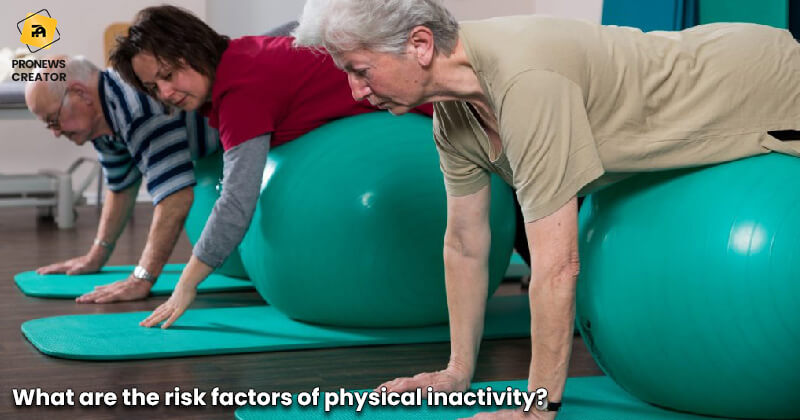
How can I make exercise a part of my routine?
| Make routine activities more energetic | Keep track of your progress |
| Make exercise more enjoyable | Find activities that you can perform even when the weather is terrible |

Final words
Physical activity increases energy and improves mood.
Any movement that causes your muscles to work and forces your body to burn calories is considered physical activity.
Swimming, running, jogging, walking, and dancing are examples of physical activities.
Physical activity has numerous health benefits, both physically and mentally. It could even help you live a longer life.


